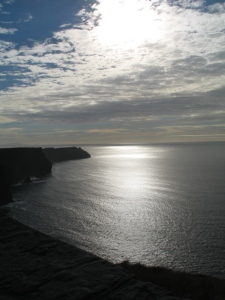The Godfather trilogy is probably the best work Francis Ford Coppola has achieved in cinema. We watch Michael Corleone go from war hero who swears to be nothing like his father. Yet a crisis occurs and Michael is thrust into the family business and eventually becomes the Godfather (the Don). He kills people, he has people killed–even his own brother. He is the commander ordering the politics of crime.
You could psychologize Michael and say he is a narcissist or a sociopath and pick apart everything about him defining and excusing. You can also theologize Michael and say his will has been corrupted and sin compounds itself. I think both are applicable–the mind and the “soul”. We are complicated beings, all fields of study need apply to help understand.
In the third movie, Michael is older. He has diabetes, his life weighs upon him. He is trying to do as much as he can to atone for his diabolical life. He gives 100 million dollars to his church, as his ex-wife says in vehemence. She believes this is a cover to prop up his public image. It probably is, yet we humans have a small corner of guilt and want of redemption and goodness in our lives. To be free from the slavery we put ourselves in. It is said covert narcissists care more about their reputation than the people they say they love. Michael may be trapped in this way of thinking. Yet, he goes back to Sicily and even visits the soon to be Pope John Paul I.
While in Sicily, he reminisces about his life there when he was in hiding after murdering a Don and a police chief in New York City. While in Sicily he got married, but his wife was killed. In his time there, he was most likely the most fulfilled and whole. When he visits there again 30 years later, he brings his ex-wife (Diane Lane) and they seem to reconcile, at least emotionally. He shows her where his father was born and how Michael spent his time in Sicily.
Then, of course, a beloved Don is killed and the family swears vengeance. And Diane Lane says, “it never ends.” She is referring to the Sicilian violence. At one point, Michael visits the soon to be Pope John Paul I. The priest asks if he would confess. Michael says what is the point, since I will not be repent. He confesses his sins anyway: murder, ordering others to murder, the order to kill his own brother, the betrayal of his wife and children. He sobs for his sin. His confessor says, “your life can be redeemed, though you don’t believe it.” He absolves Michael Corleone.
Nonetheless, the Corleone family is entwined in the politics of the church, the Vatican, and Sicily. Corruption in the bank of the church continues. The guilty are “dealt” with. Michael is a target of assassination. But his daughter is killed instead. Tragedy in a life of sin and consequence. Is this justice? Is this consequence? What price must be paid for sin and atonement?
The story of Michael Corleone seems to go full circle. When we first meet him, he has sworn not to be involved in the family business and not be like his father. “That’s my father, that’s not me,” he says to Diane Lane who will eventually be his wife, then ex-wife. The final scene of the third movie shows Michael, who has aged, sitting alone outside on a beautiful day, which seems to be Sicily. The place he was truly happy. He sits quietly and quietly passes away and falls from the chair.
This is a powerful scene. Every other Don we meet in the three movies are killed, even if just relaxing in the beautiful day in Sicily, old and wanting to live in peace. But Michael dies alone and at peace. He is not murdered. This is a scene of hope and redemption. Though it took his entire life, Michael repented and came to rest.
I think these movies are well liked because it is the story of the human heart. Life is messy. No, we aren’t in crime families, but we are capable of terrible and great things. The hope is always repentance and redemption and aim toward the Good. (not an impersonal Good, but if you’ve read other entries, hopefully you know who I am referring to)

